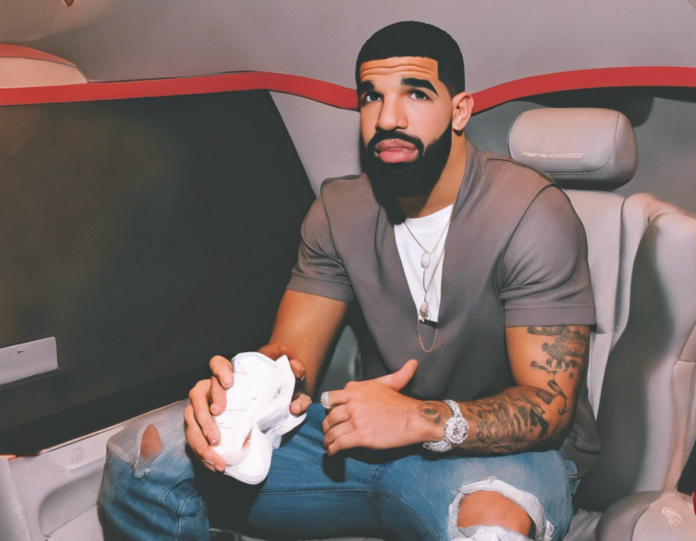Introduction
In the world of entertainment and gossip, few controversies have ignited as much frenzy as “The Drake Leak” incident. This event not only captivated the attention of millions of fans but also raised complex ethical questions about privacy, intellectual property rights, and cyber security. In this blog post, we delve deep into the heart of “The Drake Leak” to uncover the truth behind the controversy.
The Genesis of the Drake Leak
The saga began when a series of unreleased tracks by the acclaimed artist Drake surfaced online, creating a storm across social media platforms and music streaming services. These tracks, which were intended for future albums, were leaked without the artist’s consent, sparking heated debates among fans and industry insiders alike.
The Implications of the Leak
The unauthorized release of Drake’s music not only jeopardized the artist’s creative process but also raised concerns about the integrity of intellectual property rights in the digital age. Many artists invest significant time, effort, and resources into creating music, and unauthorized leaks can undermine their hard work and artistic vision.
Moreover, the leak had financial repercussions, as record labels and streaming services scrambled to contain the fallout and mitigate potential losses. The incident also shed light on the vulnerability of digital platforms to cyber breaches, prompting discussions about the need for enhanced security measures to protect sensitive content.
Impact on Drake and the Music Industry
For Drake, the leak represented a significant blow to his artistic control and reputation. The artist prides himself on curating his image and sound, and the unauthorized release of his music not only disrupted his creative process but also exposed him to criticisms and speculation from fans and critics.
Furthermore, the incident highlighted broader issues within the music industry, such as the challenges of maintaining secrecy around unreleased music in an era of widespread digital sharing. Record labels and artists must now navigate the delicate balance between satisfying fan expectations for new music and safeguarding their creative work from leaks and piracy.
Ethical Considerations
The Drake Leak also raised important ethical considerations surrounding privacy, consent, and digital ethics. Artists have a fundamental right to control the dissemination of their work and should not be subjected to unauthorized leaks that compromise their artistic integrity and livelihood.
From a consumer perspective, the leak sparked debates about the ethics of accessing and sharing leaked content. While fans may be eager to hear new music from their favorite artists, it is essential to respect the boundaries set by creators and support their work through legal and ethical means.
Protecting Against Leaks
In the aftermath of “The Drake Leak,” the music industry has intensified efforts to prevent future incidents and safeguard unreleased music from unauthorized access. Artists and record labels are exploring technological solutions such as encrypted file sharing and secure cloud storage to protect their intellectual property from cyber threats.
Additionally, industry stakeholders are emphasizing the importance of internal protocols and training to educate employees about the risks of data breaches and the significance of confidentiality agreements. By promoting a culture of vigilance and accountability, the music industry aims to fortify its defenses against leaks and ensure the integrity of creative content.
FAQs (Frequently Asked Questions)
- What are the legal implications of music leaks like “The Drake Leak”?
-
Music leaks raise complex legal issues related to intellectual property rights, copyright infringement, and digital piracy. Artists and record labels can pursue legal action against individuals or entities responsible for unauthorized leaks.
-
How do music leaks impact artists’ revenue streams?
-
Music leaks can disrupt artists’ promotional schedules, affecting album sales, streaming numbers, and concert attendance. Artists rely on revenue from music sales and performances to sustain their careers, making leaks a significant financial threat.
-
Are there cybersecurity measures that artists can take to protect their unreleased music?
-
Artists can implement cybersecurity measures such as encrypted file storage, secure communication channels, and two-factor authentication to safeguard their unreleased music from unauthorized access.
-
What role do fans play in preventing music leaks?
-
Fans can support artists by respecting their creative process, avoiding leaked content, and reporting any unauthorized releases. By prioritizing ethical consumption practices, fans can help protect artists’ work and promote a culture of respect within the music industry.
-
How can record labels enhance their data security practices to prevent leaks?
- Record labels can implement robust data security protocols, conduct regular cybersecurity audits, and provide comprehensive training to staff members on handling sensitive content. By prioritizing data security and risk management, record labels can mitigate the likelihood of leaks and protect their artists’ intellectual property.
In conclusion, “The Drake Leak” serves as a cautionary tale about the challenges and consequences of unauthorized music releases in the digital age. By examining the implications of the leak, exploring ethical considerations, and highlighting preventive measures, we can better understand the complexity of protecting creative content in an interconnected world.
